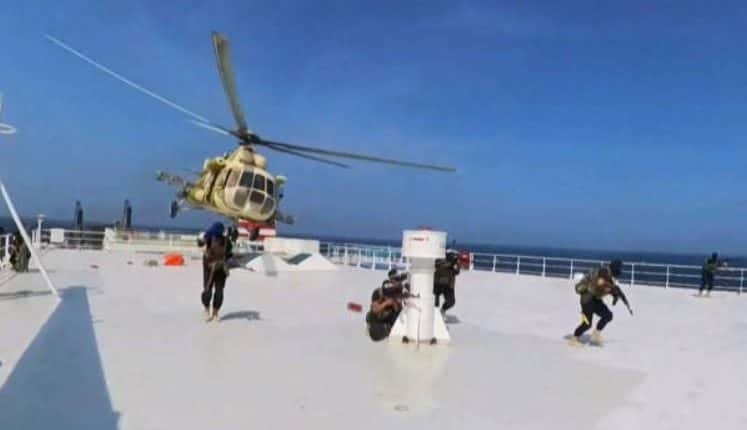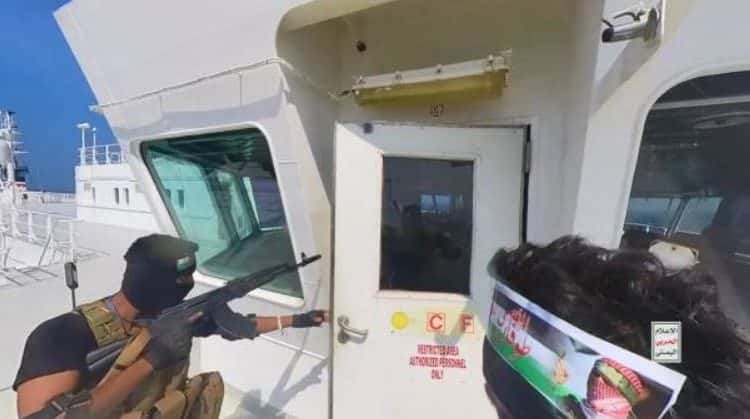
The United States has taken a significant step in response to the escalating crisis in the Red Sea by launching an international maritime security task force, Operation Prosperity Guardian.
However, doubts have arisen as only nine politically similar nations have confirmed their participation, including seven NATO allies and two small island nations.
Coalition Aims to Quell Militia Attacks and Reassure Shipping Companies
The coalition’s primary objective is to address militia attacks on vessels in the region and reassure anxious shipping companies.
Defense Secretary Lloyd Austin announced the initiative, stating that the initial goal was to gather a broad array of international powers to curb the influence of the Houthis, an armed group backed by Iran controlling substantial territory in Yemen.
The participating nations include the United Kingdom, Bahrain, Canada, France, Italy, Netherlands, Norway, Seychelles, and Spain.
Despite the deployment of naval hardware in the Red Sea, concerns linger about the coalition’s effectiveness in countering threats. White House spokesperson John Kirby expressed a wait-and-see approach, emphasizing the increased presence of naval assets from various nations.
Read more: Guanajuato Mexico’s Christmas Nightmare: 16 Victims In Recent Shootings
Persistent Houthi Attacks Despite US Warnings

While the US has issued warnings to the Houthis through diplomatic channels, their attacks persist, linked to their demand for the end of Israel’s conflict in Gaza. This linkage has influenced political decisions in Arab countries, despite the region’s heavy reliance on the affected trade routes.
Surprisingly, only Bahrain from the Middle East has joined the task force, leaving uncertainties about the extent of its support. Traditional allies, such as Saudi Arabia and Oman, remain notably absent.
Efforts to court Riyadh and engage China in the mission have faced challenges, with major shipping companies expressing anxiety and altering their regional operations.
The Red Sea’s geostrategic and economic importance has prompted calls for more countries to join the mission to defend the free flow of commerce. However, the limited participation raises questions about the coalition’s ability to effectively address the ongoing maritime security challenges.
Major shipping companies continue to face disruptions, with over 100 Houthi attacks reported since October, heightening concerns about the region’s stability. Despite USNavy actions against Houthi threats, the Biden administration remains cautious about a more drastic military intervention, aiming to prevent the Israel-Hamas conflict from escalating into a regional war.
Read more: US To Increase Security Measures: Expanded Protection For Red Sea Shipping

